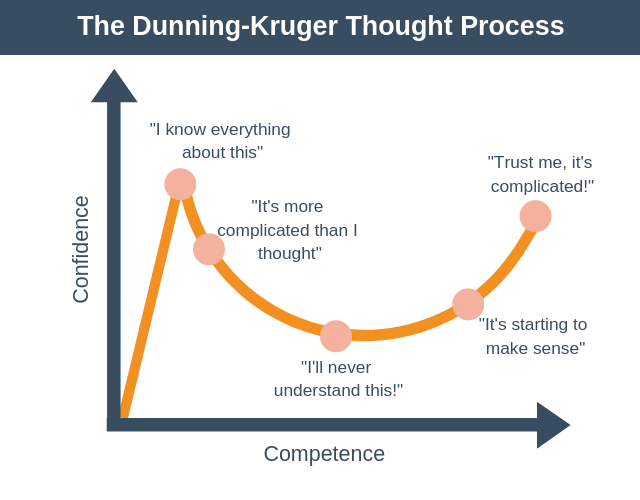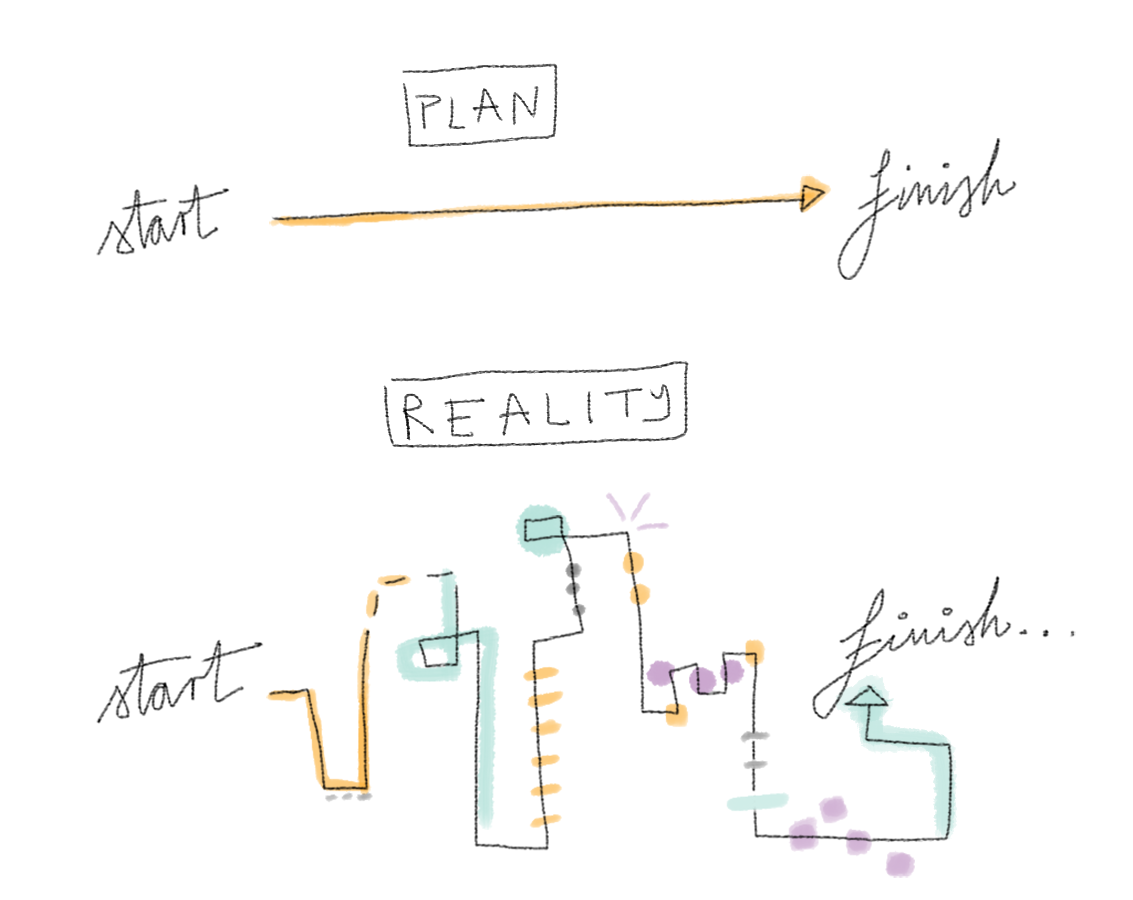IMT Graduation Speech: Dunning Kruger and finishing a PhD
Jul 15, 2021
This is a speech I gave in 2019 when graduating from IMT Lucca. I have stumbled upon it recently when reorganising (for the 5th time this year) my notes. The struggle is real ‘:).
Good afternoon Fellow Graduates, Students, IMT Faculty, IMT Staff and valued family members. I want to thank especially all the parents here today, who are probably attending their 3rd or 4th graduation ceremony and are wondering if this is finally the final one.
I am happy to tell you that it probably, most likely, maybe is.
My colleagues who have spoken before me have already outlined how IMT, PhD life and academia, in general, have enriched them both by boosting their career prospects, problem-solving abilities, stimulated them intellectually and created lifelong friendships. While I don’t want to bore you with one more such account, I would like to talk about a significant issue that remains largely unspoken. Yet, most if not all of us here have experienced it at some point, especially at the beginning of an academic career. I am talking about impostor syndrome.

The Impostor syndrome is the feeling in which one doubts one’s ability to compete with the “more accomplished others” living in fear to be exposed as a “fraud”. In the three years at IMT, from my arrival, taking courses, pursuing research and finally arriving at that most crucial decision of them all — choosing the correct font for the thesis cover — I have gone through the first four stages of the Dunning-Kruger Curve.

If the speech has now turned a little bit nerdy, I apologise and hope you will bear with me.
The Dunning-Kruger effect is a cognitive bias in which people of low ability have illusory superiority and mistakenly assess their cognitive ability as greater than it actually is. In other words, when you start out learning something new, you don’t know enough to know that you don’t know enough. Why am I bringing this up? At the beginning of my time at IMT, I also think some of you have found themselves at “peak confidence” (also known as mount stupid), sure that from here on out,, it would be smooth sailing. I have climbed the peaks of “undue confidence”, descended the slopes of “increasing doubt”, and walked the savanna of “learning by failing” (in case you don’t know yet: science is hard, good science doubly so). I apologise for this poetic outburst. In fact, the journey has been far more mundane, but still one I’d choose again if I had the choice. I think that current and new students need to know that everything will be just fine, don’t stress out. Enjoy the journey, especially since you have been given an excellent opportunity to work on this great campus surrounded by brilliant yet imperfect minds. Being aware that we are all in the same boat makes it not only OK to say “I don’t know” and ask for help, but is, in my opinion, an essential ingredient to make your time here count.

The reason that I have found myself in this position is that science is hard, to quote Douglas Adams:
(…) the universe is a lot more complicated than you might think, even if you start from a position of thinking it’s pretty damn complicated in the first place.
Starting at the peak of confidence, the way to finishing a PhD or any other worthwhile research is seldom a straight line from “Start” to “Finish”. If your research questions were simple, it either has already been answered, and you don’t know it yet or is not really that interesting to begin with. However, all the dead-ends, detours, new problems I have encountered on my journey to complete this PhD represent a truly life-changing experience. In short, while the journey is arduous, it is also the most important part. As the old adage goes: “the journey is the goal”.
To those of you in the audience, who might be in a similar situation, either having experienced the Impostor Syndrome first hand or still looking down from the peaks of undeserved confidence, I want to say: While this feeling might never wholly disappear, it is normal. Science is hard, and if it weren’t, it wouldn’t be worth it and, most importantly, be so much fun.
I leave you with the immortal words of the Nobel laureate Niels Bohr’s, a person you would think had everything figured out:
An expert is a person who has made all the mistakes that can be made in a very narrow field.
And I think that goes doubly so for PhDs.
Thank you!